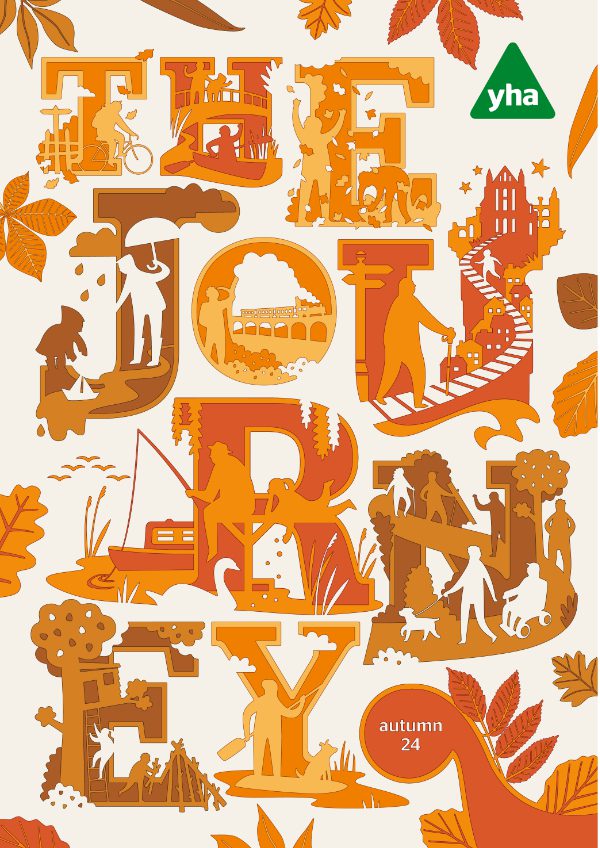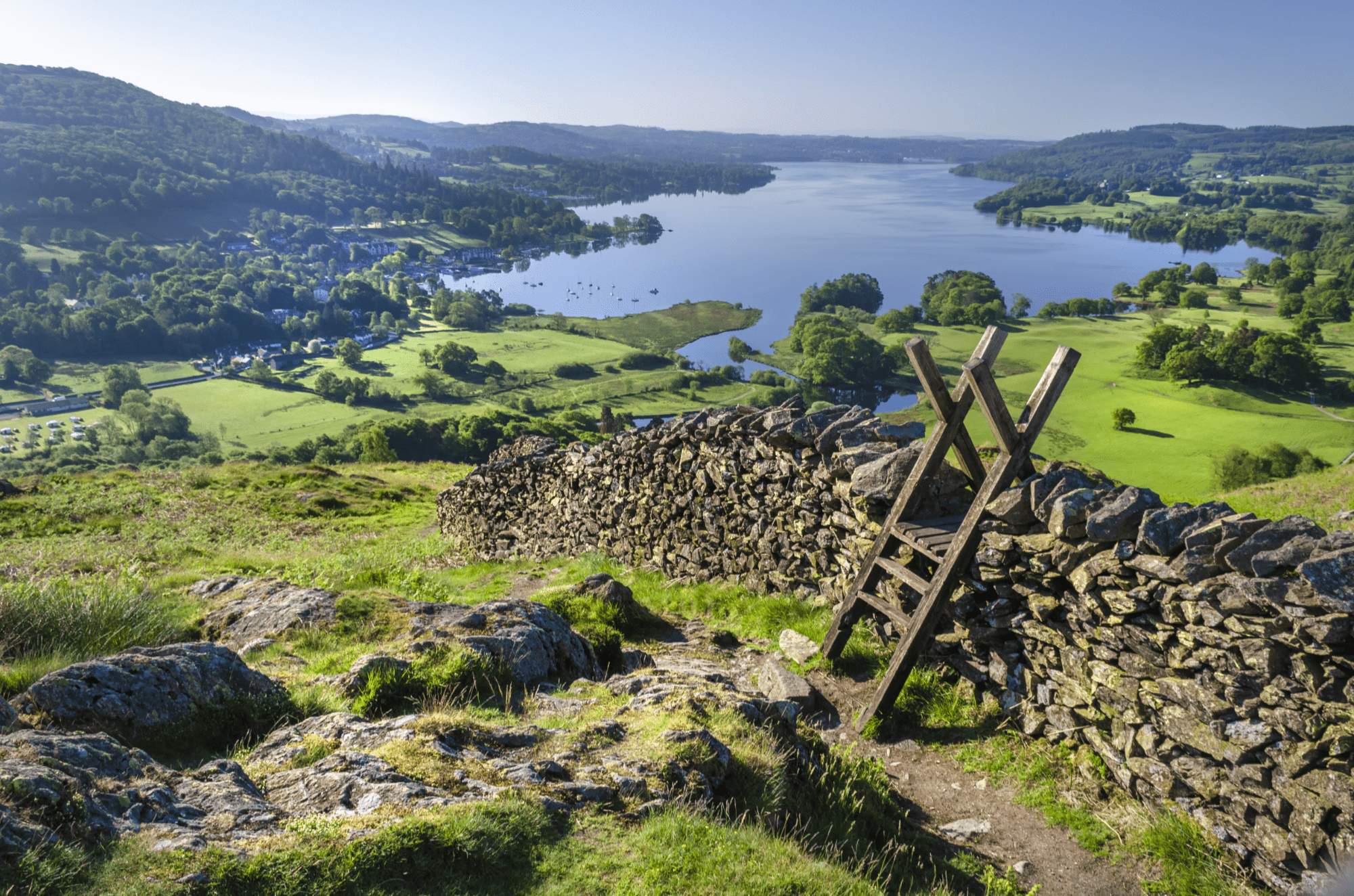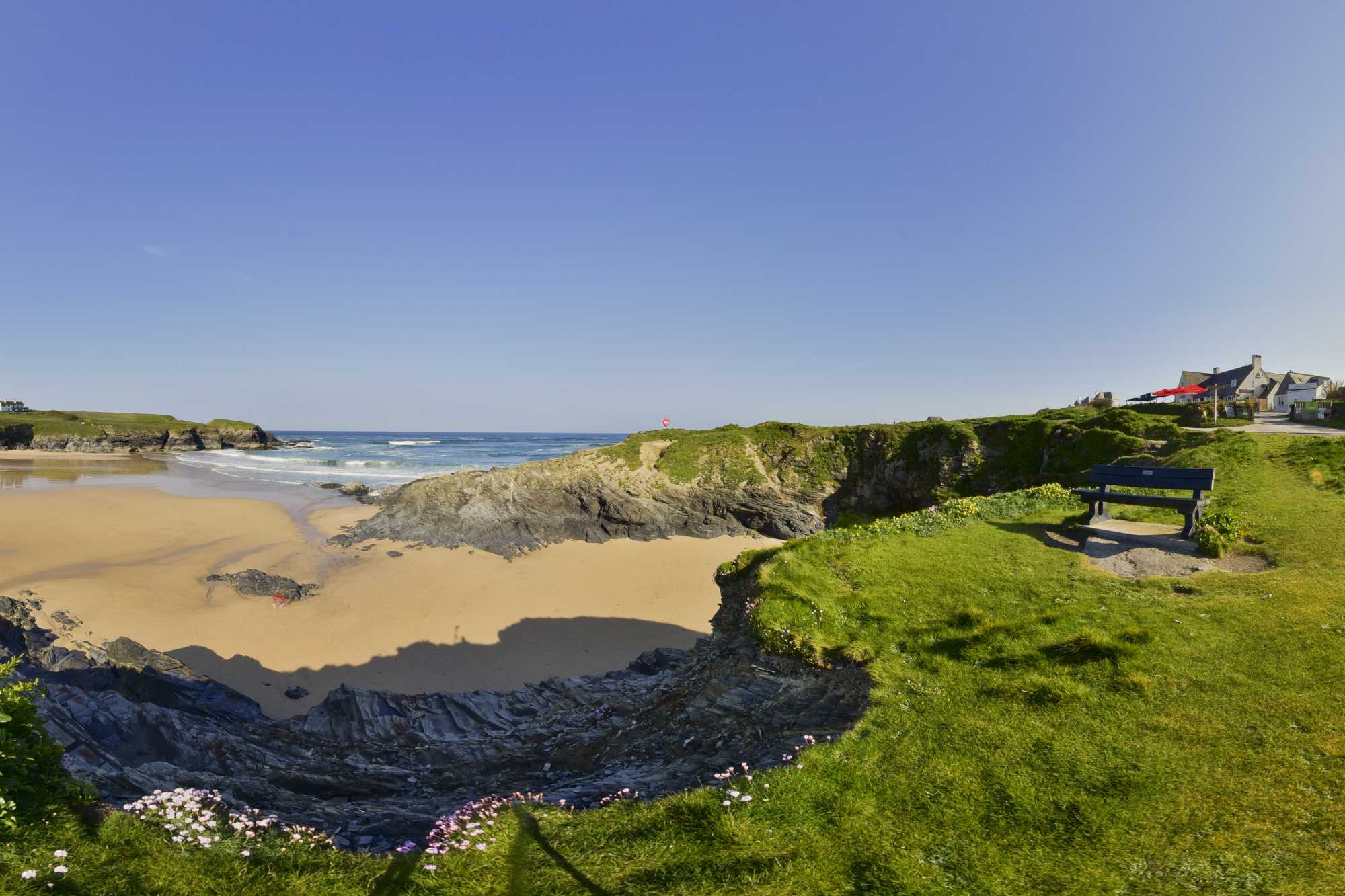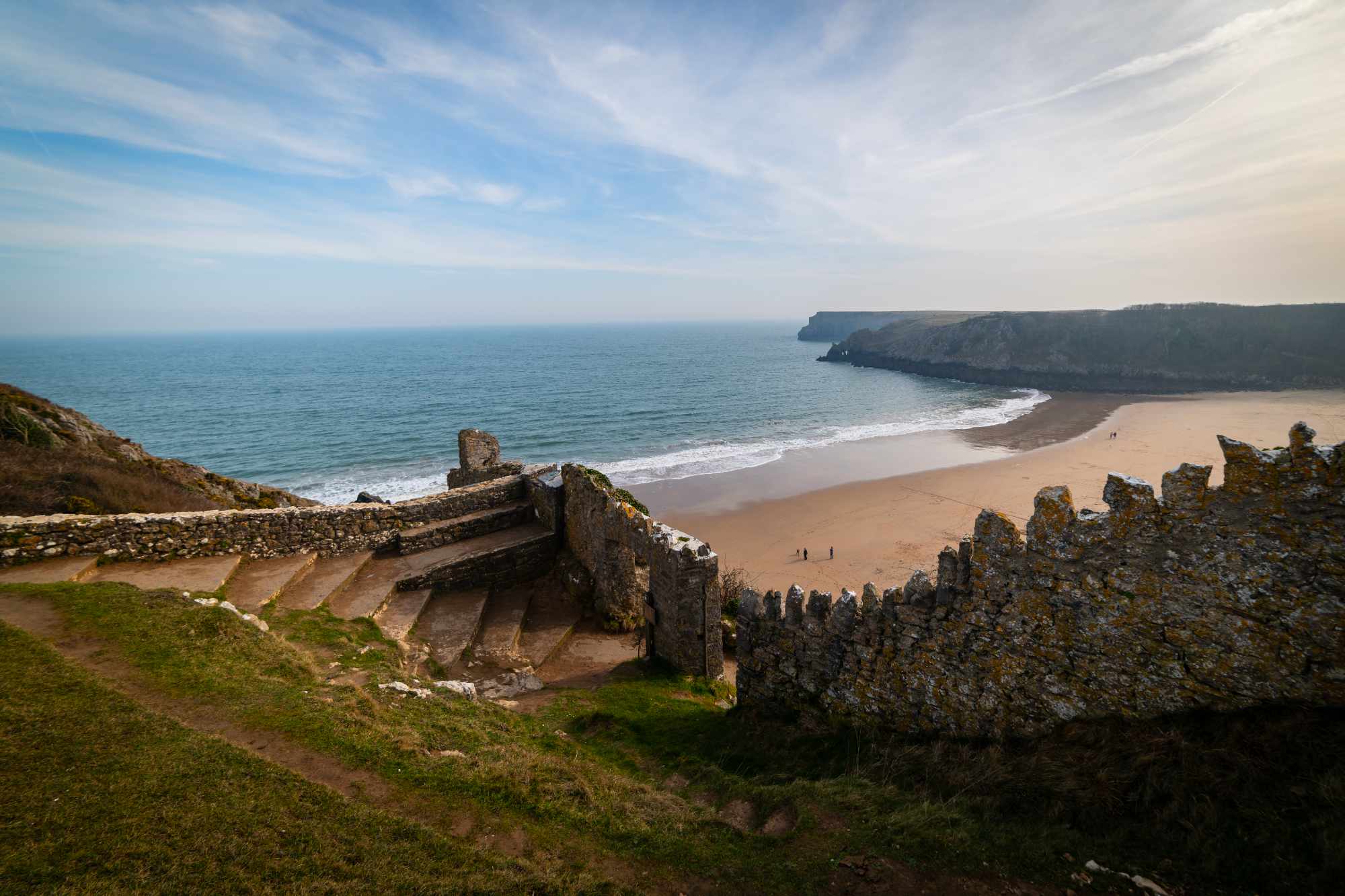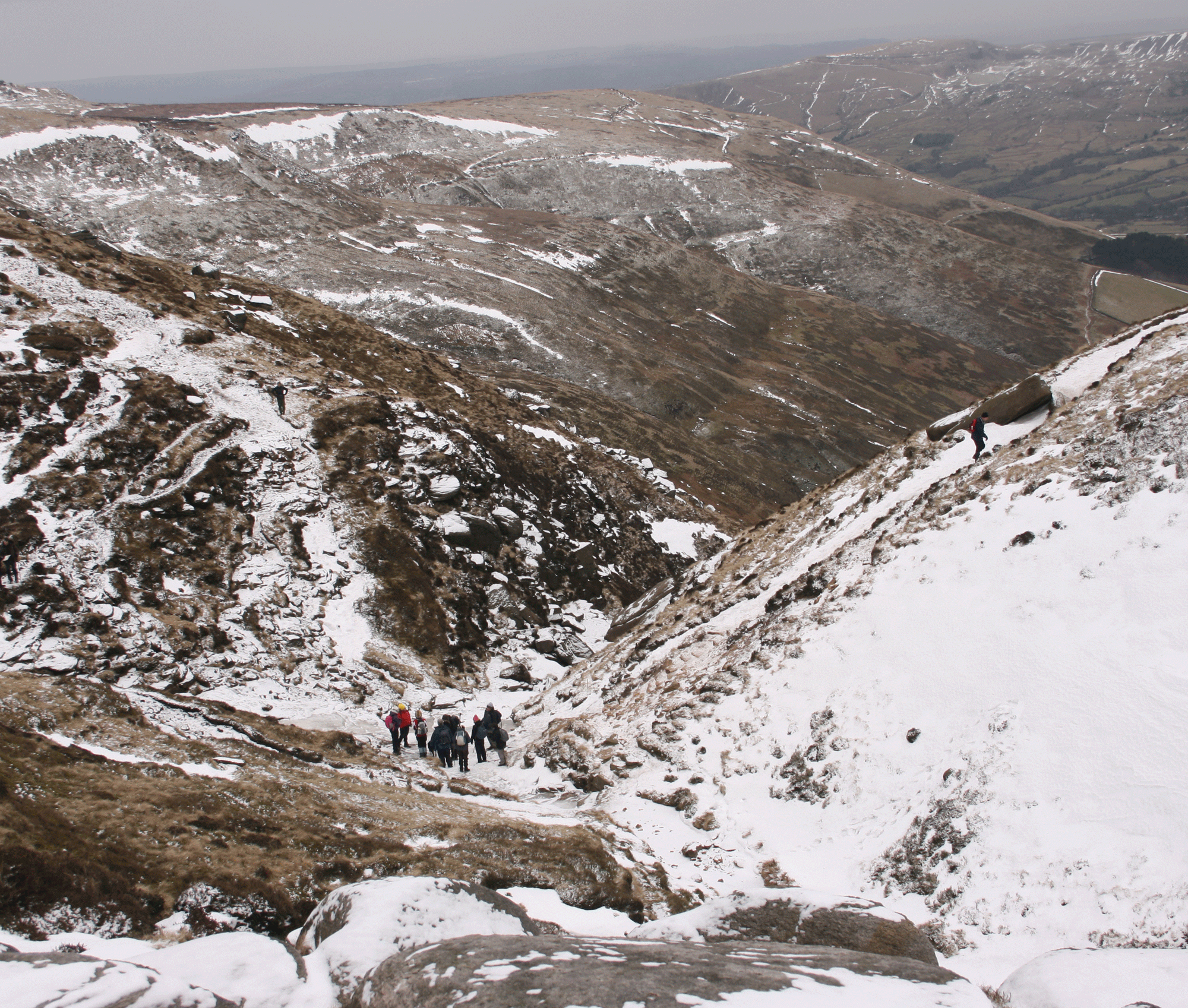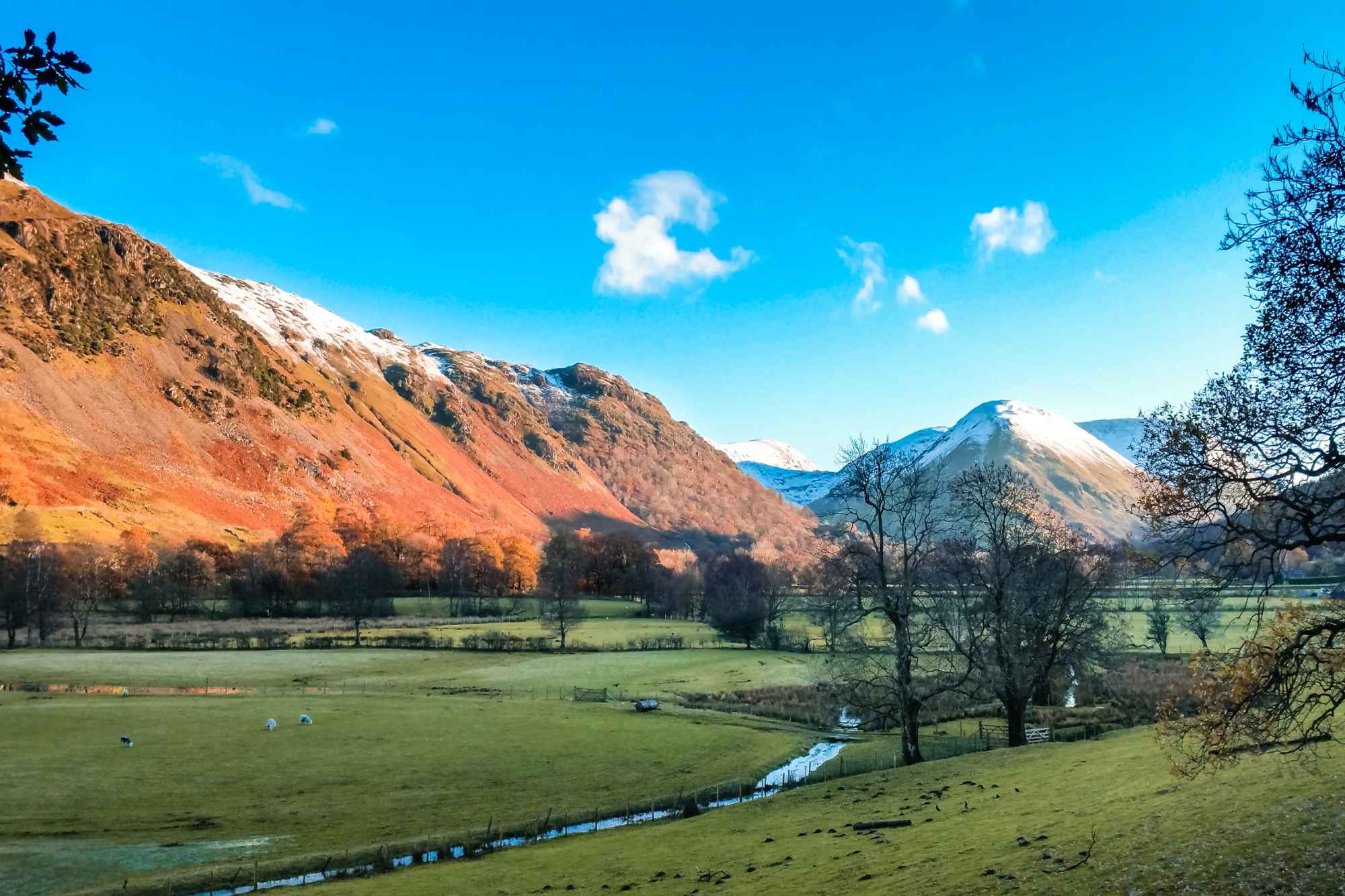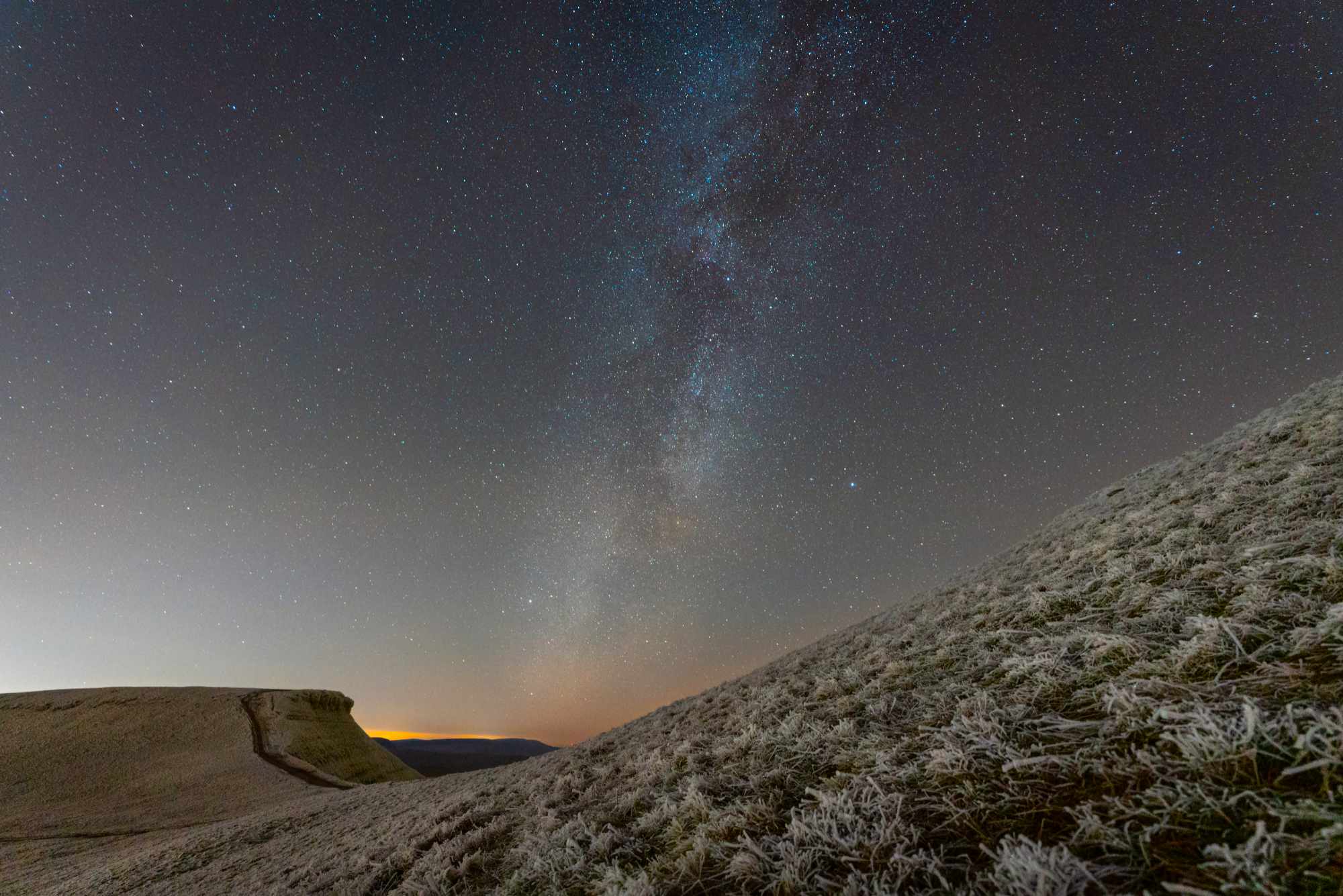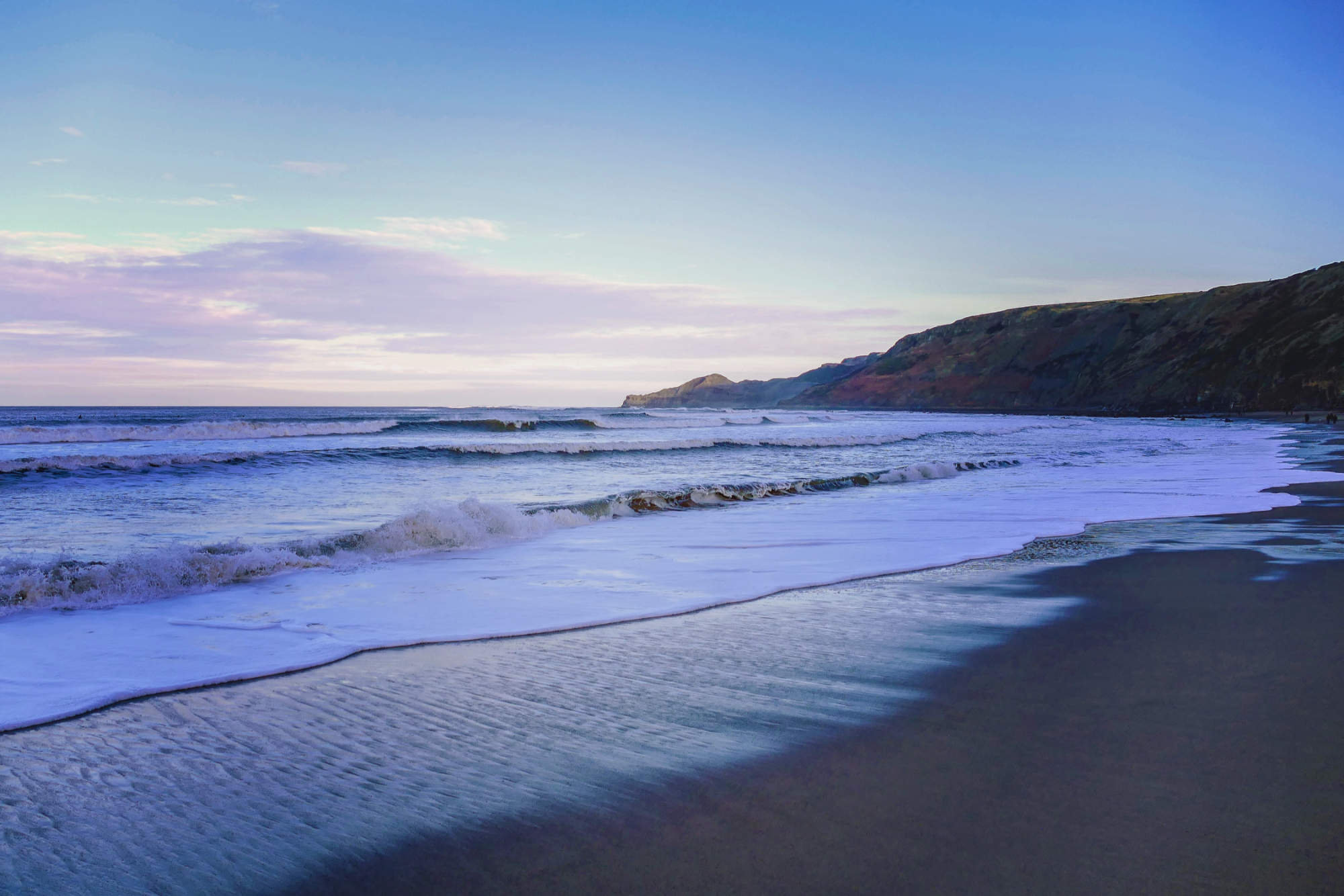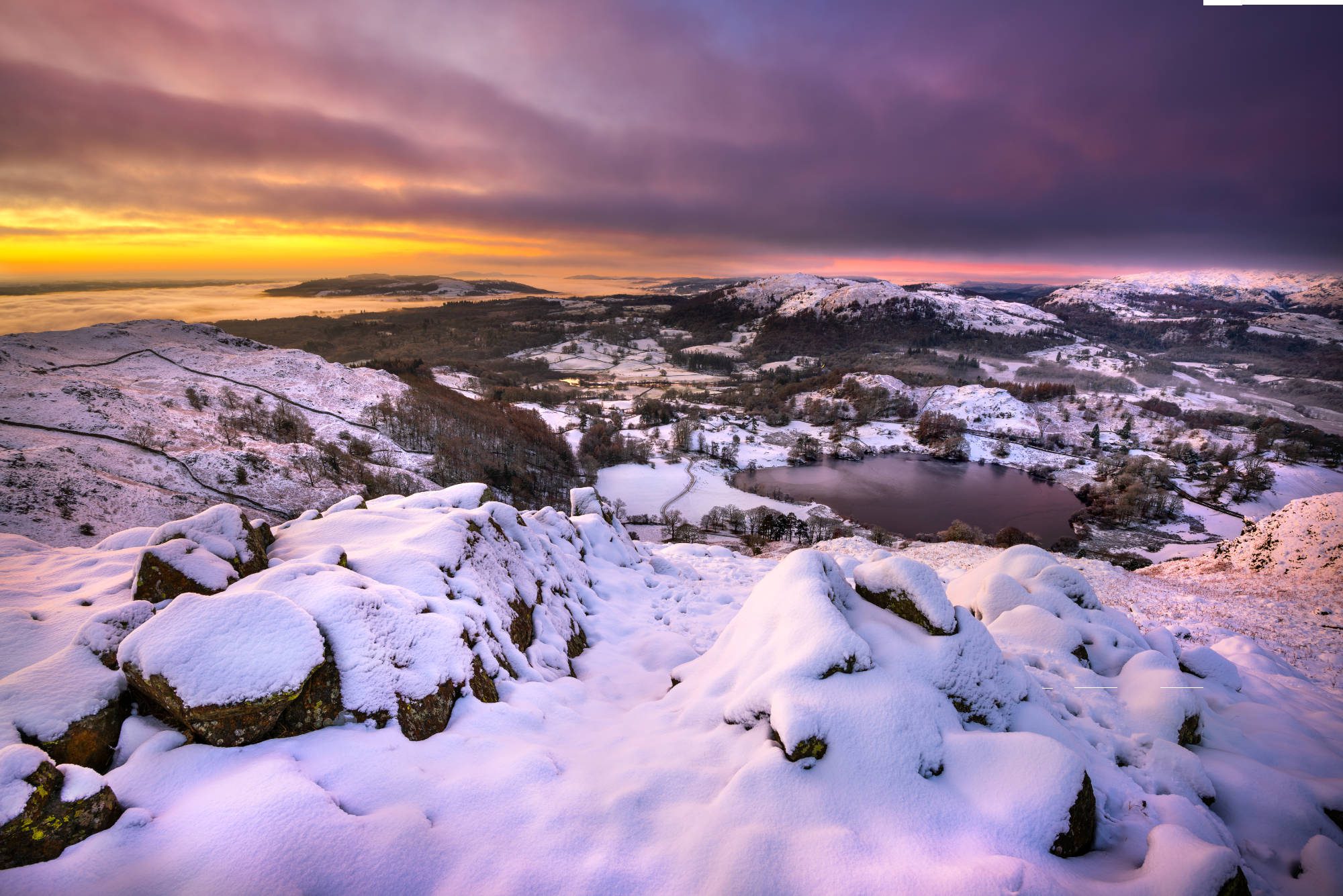Want to be a four-season hiker? Don’t give up adventuring once the weather gets chilly – that crisp winter wonderland is waiting for your footprints and we have many hostels perfect for hiking. You can even take over one of our holiday cottages and rural retreats with Exclusive Hire; perfect accommodation for large walking groups.
Your mates may think you’re mad (we’d say brave!) but year-round hiking is possible with lots of preparation. Stay fit over the cold season with the benefits of no bugs, less sunburn and untouched Narnia-like landscapes. Follow our top tips and prepare to stay warm, dry and safe.
1. Find a buddy
We’d all love to be Elsa from Frozen, but stomping off into the snow on your own is no fairy-tale. If something does go wrong (which is much more likely in snowy/muddy conditions), it’s best to have a friend there to get help and keep you warm. Find someone experienced who’ll show you the ropes on your first winter trek and teach you about the hazards you may face out on the trails. You can admire the stunning scenery together too, and nothing motivates more than having someone alongside to keep you going when you feel like turning around.
2. Dress in layers
Staying warm and dry is essential, but you must avoid overheating too – cooled-down sweat leaves you at risk of hypothermia, and it’s much harder for you to stay warm when your clothes are damp. Dress like an onion so you can easily peel off layers to adjust your temperature. Choose a moisture-wicking base of long underwear or a baselayer, a middle layer of insulating fleece to keep you warm, and a weatherproof outer jacket and trousers. Avoid cotton as it stays wet and pack a puffy insulation layer too, like a down jacket or similar synthetic, if you’re going to be staying still for long periods.
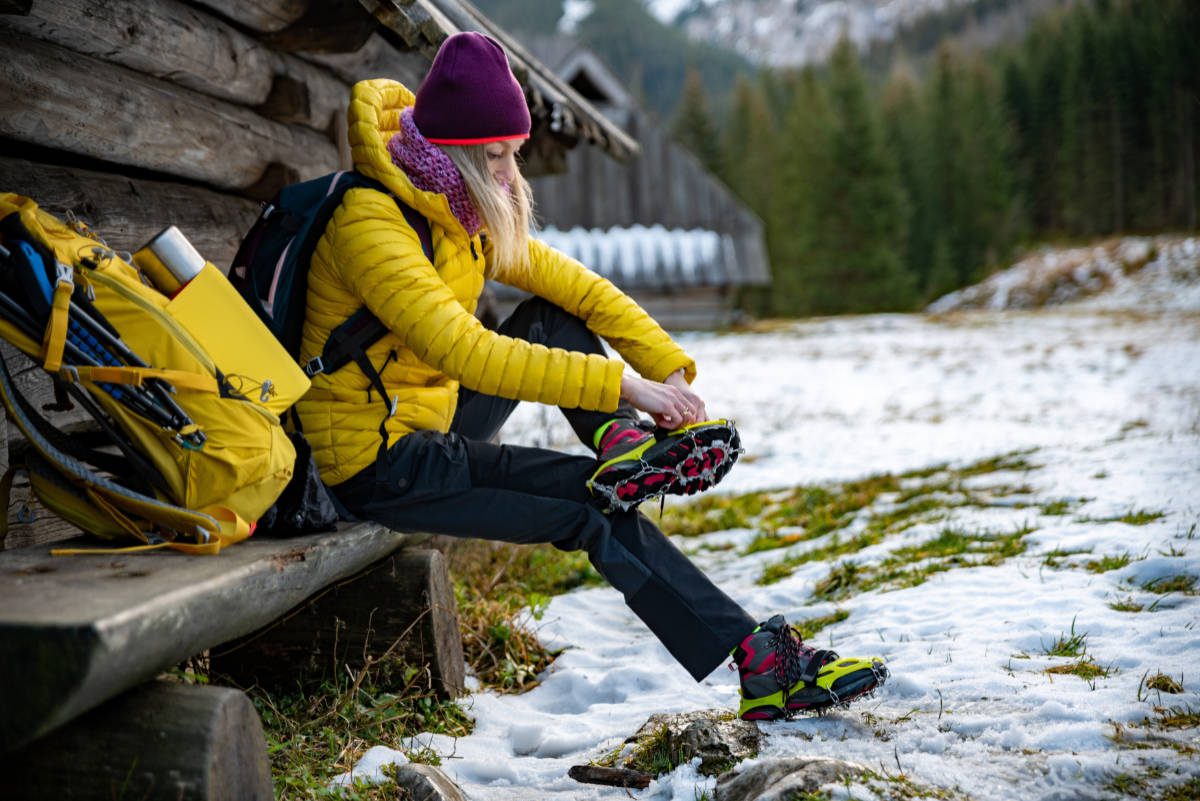
3. Accessorise
You may resemble a yeti, but there’s more! Invest in a warm weatherproof hat (you can even don a balaclava) to control your temperature. Layer your socks and gloves with base and woolly layers on your feet, and gloves and mittens for hands. Take extras for if they get wet and use knee-high gaiters and goggles for extreme weather.
Choose sturdy footwear – a pair of waterproof and insulated hiking boots is worth splurging on – and crampons or microspikes are best for slippery winter conditions. Microspikes, with their lightweight and easy-to-use design, are good for well-worn trails where you might expect a few icy patches or some slippery frost which doesn’t get much sun in the winter months. Crampons, on the other hand, are geared towards more challenging terrains, providing you with that much-needed extra traction on thicker sheets of ice and steep mountain slopes.
4. Know your route
Even your favourite hiking trail looks different in the snow, and bad weather makes it easy to get lost. Snow, heavy fog and freezing conditions can all make it much more difficult to find your bearings, and can even make you feel disoriented. Carefully plan a safe route – avoiding hazards like steep slopes, frozen rivers and avalanche areas – and take a map, compass and GPS device for navigation. Let people in your group know exactly what you’ll be doing and tell others at home when you’ll be back.
Top winter hiking routes near us: head to our London hostels for a stroll in Richmond Park, take a wonderful winter walk over the Lake District’s fells, or explore the dramatic moorland of the Welsh Brecon Beacons for a more accessible alternative to Snowdonia.

5. Check the weather
Amazing spring and summer routes can become long scary routes in extreme weather – avoid putting yourself in danger and steer clear of blizzards, strong winds and freezing rain. Check the weather forecast (especially the mountain forecast if you’re planning on heading up a summit) and your trail conditions, and turn back if the weather starts getting unmanageable. You’ll have less daylight too, so there’s absolutely no shame in turning back if things start to get a bit dicey.
6. Be prepared
Research winter survival skills (it can be brutal out there) and carry everything you need for a worst-case scenario – extra food, extra water, a bivi bag, and extra clothes. Ideally get someone in your group who’s a real Bear Grylls at fire building, first aid, shelter-building and snow navigation! Have a Plan B ready if you get stuck in a storm or if someone gets hurt. Be certain where your nearest emergency services are and always take a phone with you.

7. Camp safe
Unless you’ve got an expert at building igloos with you, spread out some camping gear between yourself and your hiking mates. If the weather gets bad and night falls, you may need to pitch up and keep warm. You’ll need a lightweight but sturdy four-season tent, thick sleeping bags and a foam camping mat. It’s always worth bringing a down jacket too just for that extra bit of warmth if you do end up needing to stay on the hills overnight.
8. Winter kitchen
Winter hiking burns lots of calories and you’ll need extra fuel to keep warm and keep moving. Take hot chocolate breaks and stay well-fed with a protein-rich breakfast, high calorie snacks throughout the day and a warming one-pot dinner. Big hiking-friendly hostels like YHA Castleton Losehill Hall and YHA Keswick are perfect for cooking up a storm in the self-catering kitchens after a long day in the cold.
You won’t feel as thirsty, but remember to drink ample amounts of water to stay hydrated, and never eat snow – you’ll waste energy melting it.

9. Health
Extreme cold can be bad news for the human body, so make sure you know the warning signs of frostbite and hypothermia. Bring hand-warming packets, first aid and something to take shelter in for if someone hurts themselves, and don’t shrug it off and try to be a hero if you feel unwell – it’s better to make it home safe and well.
10. Bring these
Make a list of everything you need for your trek including clothing, camping gear and food. Remember to pack survival essentials like a lighter, snow shovel, pocket knife, headlamp, bivvy bag and a signalling device. You can find advice about more specialised snow gear with this guide too.
Do you need some inspiration for a winter hike? From frozen waterfalls to spooky burial chambers – these UK winter walks will put a spring in your step.
Discover more about YHA.
Photo credit: _Danoz / Daniel Jędzura / Netzer Johannes / Adobe Stock

